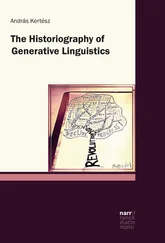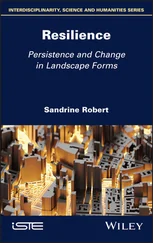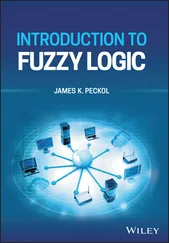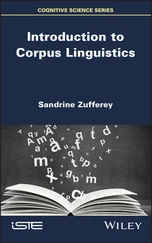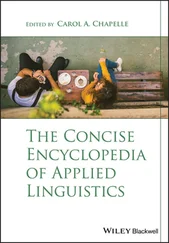Sandrine Zufferey - Introduction to Experimental Linguistics
Здесь есть возможность читать онлайн «Sandrine Zufferey - Introduction to Experimental Linguistics» — ознакомительный отрывок электронной книги совершенно бесплатно, а после прочтения отрывка купить полную версию. В некоторых случаях можно слушать аудио, скачать через торрент в формате fb2 и присутствует краткое содержание. Жанр: unrecognised, на английском языке. Описание произведения, (предисловие) а так же отзывы посетителей доступны на портале библиотеки ЛибКат.
- Название:Introduction to Experimental Linguistics
- Автор:
- Жанр:
- Год:неизвестен
- ISBN:нет данных
- Рейтинг книги:4 / 5. Голосов: 1
-
Избранное:Добавить в избранное
- Отзывы:
-
Ваша оценка:
- 80
- 1
- 2
- 3
- 4
- 5
Introduction to Experimental Linguistics: краткое содержание, описание и аннотация
Предлагаем к чтению аннотацию, описание, краткое содержание или предисловие (зависит от того, что написал сам автор книги «Introduction to Experimental Linguistics»). Если вы не нашли необходимую информацию о книге — напишите в комментариях, мы постараемся отыскать её.
Introduction to Experimental Linguistics — читать онлайн ознакомительный отрывок
Ниже представлен текст книги, разбитый по страницам. Система сохранения места последней прочитанной страницы, позволяет с удобством читать онлайн бесплатно книгу «Introduction to Experimental Linguistics», без необходимости каждый раз заново искать на чём Вы остановились. Поставьте закладку, и сможете в любой момент перейти на страницу, на которой закончили чтение.
Интервал:
Закладка:
1.4. Advantages and disadvantages of experimental linguistics
So far, we have shown how experimental linguistics is set within the scientific process and involves the use of quantitative methodology for studying language. On the basis of these principles, the results from studies in experimental linguistics are considered representative and can be generalized, unlike those from studies based on a qualitative methodology. The possibility of generalizing results is one of the strong points of research in experimental linguistics. However, this approach has a less positive corollary. Due to its empirical and quantitative nature, experimental linguistics needs to measure the linguistic phenomena it intends to study. While this can be relatively simple in some cases, the operationalization of complex processes (let us consider language comprehension, for example) implies the decision to observe certain indicators which could, at some point, not exactly measure what is desired. This issue will be discussed in more detail in Chapter 2. For now, it is important to keep in mind that just because something can be measured, this does not necessarily make it valid or reliable. Conclusions drawn on the basis of inadequate measures may not correspond to reality and may therefore lead to erroneous generalizations.
We have also seen repeatedly throughout this chapter, that experimental linguistics aim to identify the variables, also called factors, which can influence linguistic processes. For this, it is necessary to establish causal relations between variables by manipulating them. In this respect, experimental linguistics differs from another quantitative method, corpus linguistics, which aims to observe linguistic phenomena on the basis of natural data. While corpus linguistics can only account for a relation between some variables, experimental linguistics also makes it possible to explain the reasons underlying such connections between variables. These two methods are considered complementary, since they take place at different stages of the research process. Implementing a corpus study makes it possible to explore data and to uncover relationships between variables, relationships which can later be investigated experimentally, based on the hypotheses formulated as a result of data observation.
One of the prerequisites for establishing a cause and effect relationship between two variables, is the control of the conditions in which these variables are manipulated, as well as the identification of all the external variables that could influence the results. This necessity has the advantage of enabling solid conclusions as to the relationship between the variables, but risks keeping the experiment too far from reality. In certain comprehension experiments, such as reading tasks, for example, the sentences are presented word by word in order to measure the time allotted to each word. This way of reading differs enormously from natural reading conditions, where it is notably possible to go back in the text. For these reasons, experimental studies may lack ecological validity and not be completely generalizable.
This need for control also implies that each experiment can only investigate a specific hypothesis, in which every variable is operationalized in a certain way. For this reason, a specific experiment can only respond to a narrow research question. It is therefore essential to conduct a lot of different experiments to arrive at the comprehension of a phenomenon. Knowledge can then be built on the accumulation of experimental research related to such a phenomenon.
Beyond these limitations, the experimental methodology is a very important tool for linguistics, as it makes possible to study almost any research hypothesis. When linguistic phenomena are very rare or hardly accessible to the consciousness, it becomes essential for the construction of knowledge about these phenomena.
1.5. Where to access research on experimental linguistics
Before going further in this book, we offer a list of scientific journals publishing studies on experimental linguistics. As this is an extremely large and varied field, we cannot set up an exhaustive list of such resources. We will limit our choice to reputable journals in different fields of application. A large part of these journals originate from, or are related to, the field of psychology. As we have already seen, there is a close connection between psycholinguistics and experimental linguistics, due to the fact that they share common methods and measures. It is therefore unsurprising that studies in experimental linguistics are found in journals classified under the psychology section.
The following journals are excellent sources for finding research in experimental linguistics: Discourse Processes; Journal of Pragmatics; Journal of Phonetics; Journal of Experimental Linguistics; Applied Psycholinguistics; Second Language Research; Studies in Second Language Acquisition; Bilingualism: Language and Cognition; Cognition; The Quarterly Journal of Experimental Psychology; Journal of Memory and Language; Journal of Experimental Psychology: Learning, Memory, and Cognition; Language, Cognition, and Neuroscience; Behavioral and Brain Science; Psychological Science.
1.6. Conclusion
In this chapter, we first saw that the scientific process is based on the observation of concrete phenomena, whose systematicity enhances the development of explanatory theories. On the basis of these theories, it is possible to develop specific predictions which will then be tested, in order to refine or revise the existing theories. We then presented the difference between qualitative and quantitative approaches, in terms of the types of reasoning and possibilities of generalization. We also saw that quantitative research can adopt different types depending on the manner of observing the variables, as well as the control procedures carried out on them.
We then presented the characteristics of experimental research. Such research is based on a research question, making it possible to formulate clear hypotheses as to the relationship between two or more operationalized variables. In order to test these hypotheses, it is necessary to manipulate the variables involved in an experimental study, while controlling the other variables which may influence the results. In parallel, it is essential to test naive individuals, using numerous items, and to distribute the participants randomly under the different conditions. Finally, the data collected in an experimental study is mostly quantitative in nature, so that it can be synthesized and analyzed by means of statistical tests.
Studies carried out in experimental linguistics can examine linguistic production or comprehension. For the study of the latter, we have seen that there is a first differentiation between explicit and implicit measures, depending on the tasks. A second differentiation lies in the processes examined: while offline tasks focus on the results of comprehension, online tasks look into the comprehension processes.
Finally, we discussed the advantages and disadvantages of the experimental approach in linguistics, before suggesting useful resources for becoming familiar with this type of research.
1.7. Revision questions and answer key
1.7.1. Questions
1 1) How can inductive and deductive approaches be complementary for the construction of a research question?
2 2) Imagine a way to study the influence of fatigue on retrieving tip-of-the-tongue (TOT) words in a qualitative and then in a quantitative manner.
3 3) Which of the following assertions are empirically testable research hypotheses? How could you transform non-testable propositions into testable hypotheses?a) There is a key factor in language learning.b) The elderly suffer more from tip-of-the-tongue (TOT) failures in everyday life than younger people do.c) French speakers find it easier to learn Italian than English speakers.d) Short words are processed faster than long words while reading.
Читать дальшеИнтервал:
Закладка:
Похожие книги на «Introduction to Experimental Linguistics»
Представляем Вашему вниманию похожие книги на «Introduction to Experimental Linguistics» списком для выбора. Мы отобрали схожую по названию и смыслу литературу в надежде предоставить читателям больше вариантов отыскать новые, интересные, ещё непрочитанные произведения.
Обсуждение, отзывы о книге «Introduction to Experimental Linguistics» и просто собственные мнения читателей. Оставьте ваши комментарии, напишите, что Вы думаете о произведении, его смысле или главных героях. Укажите что конкретно понравилось, а что нет, и почему Вы так считаете.
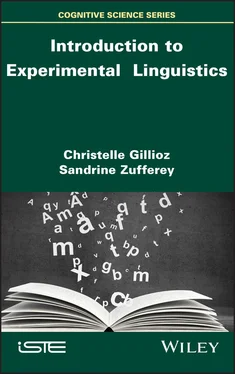


![Andrew Radford - Linguistics An Introduction [Second Edition]](/books/397851/andrew-radford-linguistics-an-introduction-second-thumb.webp)

